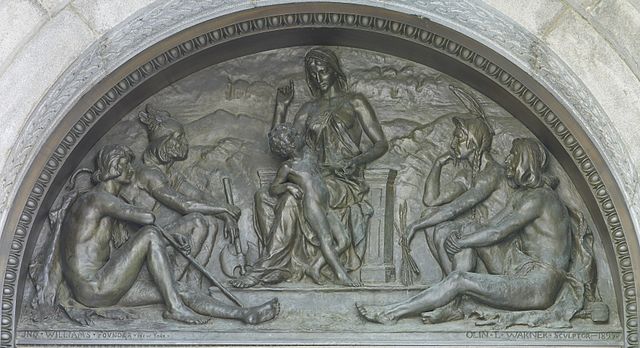Time immemorial is a phrase meaning time extending beyond the reach of memory, record, or tradition, indefinitely ancient, "ancient beyond memory or record". The phrase is used in legally significant contexts as well as in common parlance.
Richard I the Lionheart being anointed during his coronation in Westminster Abbey in 1189, from a 13th-century chronicle. Any time before the accession of Richard I is considered "time immemorial" in English law.
A tradition is a system of beliefs or behaviors passed down within a group of people or society with symbolic meaning or special significance with origins in the past. A component of cultural expressions and folklore, common examples include holidays or impractical but socially meaningful clothes, but the idea has also been applied to social norms and behaviors such as greetings etc. Traditions can persist and evolve for thousands of years— the word tradition itself derives from the Latin word tradere literally meaning to transmit, to hand over, to give for safekeeping. While it is reportedly assumed that traditions have an ancient history, many traditions have been invented on purpose, whether it be political or cultural, over short periods of time. Various academic disciplines also use the word in a variety of ways.
Traditions, an 1895 bronze tympanum by Olin Levi Warner over the main entrance of the Thomas Jefferson Building at the Library of Congress in Washington, D.C.
Textual traditions of bound manuscripts of the Sefer Torah (Torah scroll) are passed down providing additional vowel points, pronunciation marks, and stress accents in the authentic Masoretic Text of the Jewish Bible, often the basis for translations of Christianity's Old Testament.
Holiday celebrations may be passed down as traditions, as is the case with this distinctly Polish Christmas meal, decor with Christmas tree, a tradition since the late 18th and early 19th centuries.




